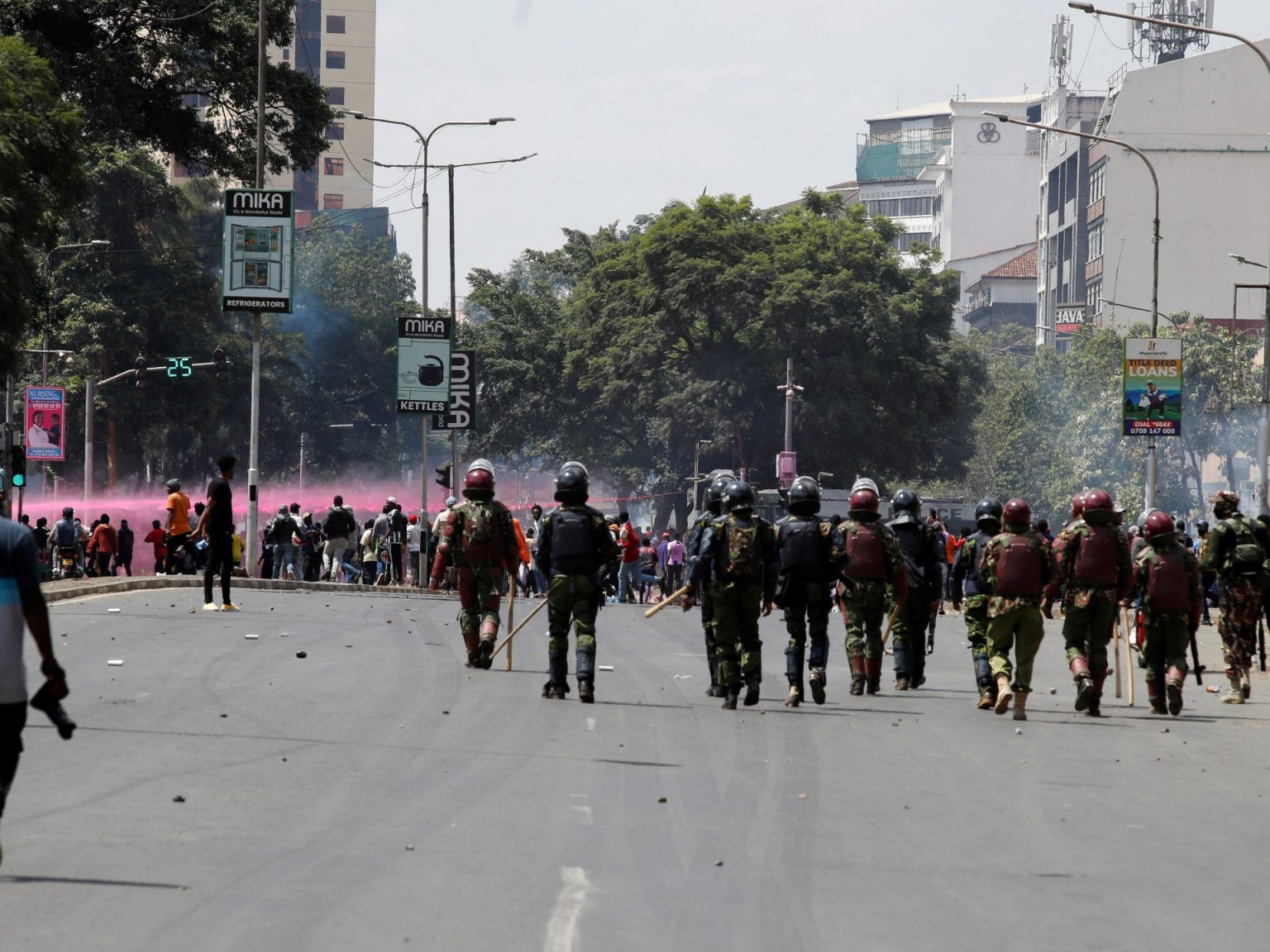In Kenya, deadly protests erupt after the Parliament passes a controversial finance bill. The bill, which increases taxes on fuel and other essential goods, has sparked outrage among the citizens who are already struggling with high living costs. The protests turned violent as police clashed with demonstrators demanding the repeal of the bill. The situation escalated further when protesters began looting and setting fires in the streets, leading to a state of chaos and insecurity in the country.
The passing of the finance bill has been met with widespread criticism from both the opposition and civil society groups in Kenya. Many argue that the tax hikes will disproportionately affect the poor and working-class citizens who are already struggling to make ends meet. The bill also comes at a time when the country is facing economic challenges, including high inflation and unemployment rates. Critics argue that the government should focus on addressing these underlying issues instead of burdening the population with more taxes.
The violent protests and unrest in Kenya have raised concerns about the government’s handling of the situation. Human rights organizations have condemned the use of excessive force by the police in dealing with the protesters. Reports of injuries and deaths among both protesters and police officers have only added to the tension and anger among the population. The government’s response to the protests has been criticized as heavy-handed and lacking in empathy for the grievances of the people.
The protests in Kenya have also highlighted the deep-seated social and economic inequalities in the country. The tax hikes proposed in the finance bill are seen as benefiting the wealthy elite while burdening the poor and marginalized communities. Many protesters have expressed frustration with the government’s prioritization of the interests of the rich over the majority of the population. The unrest in Kenya reflects a wider trend of growing social discontent and disillusionment with the government’s policies and actions.
In the midst of the chaos and violence, calls for dialogue and peaceful resolution have emerged from various quarters. Civil society organizations and religious leaders have called for an end to the violence and a meaningful dialogue between the government and the opposition to address the underlying issues fueling the protests. The international community has also urged restraint and respect for human rights in dealing with the demonstrations. The need for a peaceful and inclusive solution to the crisis in Kenya has become increasingly urgent as the situation continues to deteriorate.
As the protests in Kenya show no signs of abating, the government faces a critical test of leadership and governance. The violence and unrest have exposed the deep-seated frustrations and grievances of the population, which cannot be ignored or suppressed. The government must address the root causes of the protests, including economic hardships and social inequalities, through meaningful reforms and policies that prioritize the well-being of all citizens. The future stability and prosperity of Kenya depend on the government’s ability to listen to the voices of the people and work towards a more equitable and inclusive society.


